- Home
- H. Beam Piper
Time Crime
Time Crime Read online
Produced by Greg Weeks, Sankar Viswanathan, and the Online DistributedProofreading Team at https://www.pgdp.net
Transcriber's note.
This etext was produced from Astounding Science Fiction Magazine February and March 1955. Extensive research did not uncover any evidence that the copyright on this publication was renewed.
TIME CRIME
BY H. BEAM PIPER
_First of Two Parts. The Paratime Police had a real headache thistime! Tracing one man in a population of millions is easy--comparedto finding one gang hiding out on one of billions of probability lines!_
Illustrated by Freas
]
ASTOUNDING SCIENCE-FICTION
Kiro Soran, the guard captain, stood in the shadow of the verandaroof, his white cloak thrown back to display the scarlet lining. Herubbed his palm reflectively on the checkered butt of his revolver andwatched the four men at the table.
"And ten tens are a hundred," one of the clerks in blue jackets said,adding another stack to the pile of gold coins.
"Nineteen hundreds," one of the pair in dirty striped robes agreed,taking a stone from the box in front of him and throwing it away. Onlyone stone remained. "One more hundred to pay."
One of the blue-jacketed plantation clerks made a tally mark; hiscompanion counted out coins, ten and ten and ten.
Dosu Golan, the plantation manager, tapped impatiently on his polishedboot leg with a thin riding whip.
]
"I don't like this," he said, in another and entirely differentlanguage. "I know, chattel slavery's an established custom on thissector, and we have to conform to local usages, but it sickens me tohave to haggle with these swine over the price of human beings. Onthe Zarkantha Sector, we used nothing but free wage-labor."
"Migratory workers," the guard captain said. "Humanitarianconsiderations aside, I can think of a lot better ways of meeting thelabor problem on a fruit plantation than by buying slaves you need forthree months a year and have to feed and quarter and clothe and doctorthe whole twelve."
"Twenty hundreds of _obus_," the clerk who had been counting the moneysaid. "That is the payment, is it not, Coru-hin-Irigod?"
"That is the payment," the slave dealer replied.
The clerk swept up the remaining coins, and his companion took themover and put them in an iron-bound chest, snapping the padlock. Thetwo guards who had been loitering at one side slung their rifles andpicked up the chest, carrying it into the plantation house. The slavedealer and his companion arose, putting their money into a leatherbag; Coru-hin-Irigod turned and bowed to the two men in white cloaks.
"The slaves are yours, noble lords," he said.
Across the plantation yard, six more men in striped robes, withcarbines slung across their backs, approached; with them came anotherman in a hooded white cloak, and two guards in blue jackets and redcaps, with bayoneted rifles. The man in white and his armed attendantscame toward the house; the six Calera slavers continued across theyard to where their horses were picketed.
"If I do not offend the noble lords, then," Coru-hin-Irigod said, "Ibeg their sufferance to depart. I and my men have far to ride if wewould reach Careba by nightfall. The Lord, the Great Lord, the LordGod Safar watch between us until we meet again."
Urado Alatana, the labor foreman, came up onto the porch as the twoslavers went down.
"Have a good look at them, Radd?" the guard captain asked.
"You think I'm crazy enough to let those bandits out of here with twothousand _obus_--forty thousand Paratemporal Exchange Units--of theCompany's money without knowing what we're getting?" the otherparried. "They're all right--nice, clean, healthy-looking lot. I dideverything but take them apart and inspect the pieces while they werebeing unshackled at the stockade. I'd like to know where thisCoru-hin-Whatshisname got them, though. They're not local stuff. Lotdarker, and they're jabbering among themselves in some lingo I neverheard before. A few are wearing some rags of clothing, and they haveodd-looking sandals. I noticed that most of them showed marks ofrecent whipping. That may mean they're troublesome, or it may justmean that these Caleras are a lot of sadistic brutes."
"Poor devils!" The man called Dosu Golan was evidently hoping thathe'd never catch himself talking about fellow humans like that. Theguard captain turned to him.
"Coming to have a look at them, Doth?" he asked.
"You go, Kirv; I'll see them later."
"Still not able to look the Company's property in the face?" thecaptain asked gently. "You'll not get used to it any sooner than now."
"I suppose you're right." For a moment Dosu Golan watchedCoru-hin-Irigod and his followers canter out of the yard and breakinto a gallop on the road beyond. Then he tucked his whip under hisarm. "All right, then. Let's go see them."
The labor foreman went into the house; the manager and the guardcaptain went down the steps and set out across the yard. A bigslat-sided wagon, drawn by four horses, driven by an old slave in ablue smock and a thing like a sunbonnet, rumbled past, loaded withnewly-picked oranges. Blue woodsmoke was beginning to rise from thestoves at the open kitchen and a couple of slaves were noisilychopping wood. Then they came to the stockade of close-set pointedpoles. A guard sergeant in a red-trimmed blue jacket, armed with arevolver, met them with a salute which Kiro Soran returned: heunfastened the gate and motioned four or five riflemen into positionsfrom which they could fire in between the poles in case the slavesturned on their new owners.
There seemed little danger of that, though Kiro Soran kept his handclose to the butt of his revolver. The slaves, an even hundred ofthem, squatted under awnings out of the sun, or stood in line to drinkat the water-butt. They furtively watched the two men who had enteredamong them, as though expecting blows or kicks; when none wereforthcoming, they relaxed slightly. As the labor foreman had said,they were clean and looked healthy. They were all nearly naked; therewere about as many women as men, but no children or old people.
"Radd's right," the captain told the new manager. "They're not local.Much darker skins, and different face-structure; faces wedge-shapedinstead of oval, and differently shaped noses, and brown eyes insteadof black. I've seen people like that, somewhere, but--"
He fell silent. A suspicion, utterly fantastic, had begun to form inhis mind, and he stepped closer to a group of a dozen-odd, the managerfollowing him. One or two had been unmercifully lashed, not long ago,and all bore a few lash-marks. Odd sort of marks, more likeburn-blisters than welts. He'd have to have the Company doctor look atthem. Then he caught their speech, and the suspicion was converted tocertainty.
"These are not like the others: they wear fine garments, and walkproudly. They look stern, but not cruel. They are the real mastershere; the others are but servants."
He grasped the manager's arm and drew him aside.
"You know that language?" he asked. When the man called Dosu Golanshook his head, he continued: "That's Kharanda; it's a dialect spokenby a people in the Ganges Valley, in India, on the Kholghoor Sector ofthe Fourth Level."
Dosu Golan blinked, and his face went blank for a moment.
"You mean they're from outtime?" he demanded. "Are you sure?"
"I did two years on Fourth Level Kholghoor with the Paratime Police,before I took this job," the man called Kiro Soran replied. "Andanother thing. Those lash-marks were made with some kind of anelectric whip. Not these rawhide quirts the Caleras use."
It took the plantation manager all of five seconds to add that up. Theanswer frightened him.
"Kirv, this is going to make a simply hideous uproar, all the way upto Home Time Line main office," he said. "I don't know what I'm goingto do--"
"Well, I know what I have to
do." The captain raised his voice, usingthe local language: "Sergeant! Run to the guardhouse, and tellSergeant Adarada to mount up twenty of his men and take off afterthose Caleras who sold us these slaves. They're headed down the roadtoward the river. Tell him to bring them all back, and especiallytheir chief, Coru-hin-Irigod, and him I want alive and able to answerquestions. And then get the white-cloak lord Urado Alatena, and comeback here."
"Yes, captain." The guards were all Yarana people; they dislikedCaleras intensely. The sergeant threw a salute, turned, and ran.
"Next, we'll have to isolate these slaves," Kiro Soran said. "You'dbetter make a full report to the Company as soon as possible.

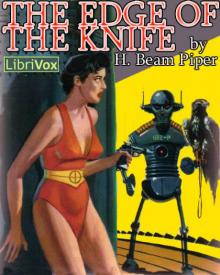 The Edge of the Knife
The Edge of the Knife Genesis
Genesis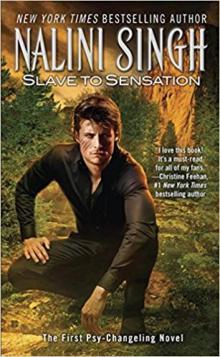 A Slave is a Slave
A Slave is a Slave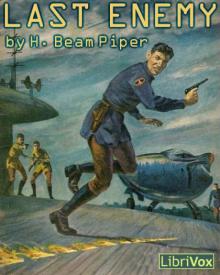 Last Enemy
Last Enemy Uller Uprising
Uller Uprising Ministry of Disturbance
Ministry of Disturbance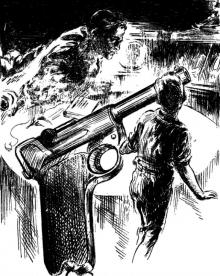 Time and Time Again
Time and Time Again The Mercenaries
The Mercenaries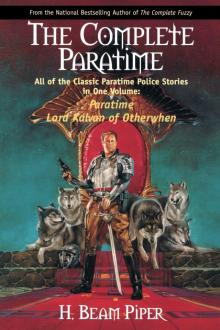 Police Operation
Police Operation He Walked Around the Horses
He Walked Around the Horses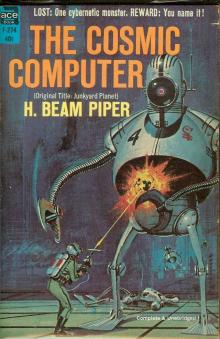 Time Crime
Time Crime Dearest
Dearest Day of the Moron
Day of the Moron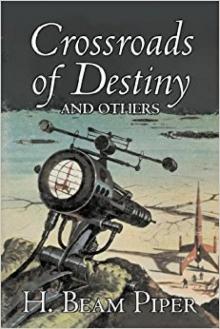 Crossroads of Destiny
Crossroads of Destiny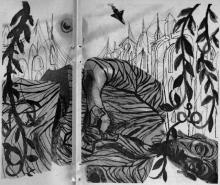 Graveyard of Dreams
Graveyard of Dreams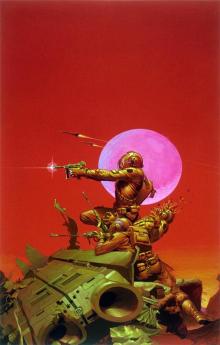 The Cosmic Computer
The Cosmic Computer Ullr Uprising
Ullr Uprising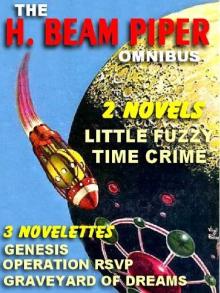 Operation R.S.V.P.
Operation R.S.V.P.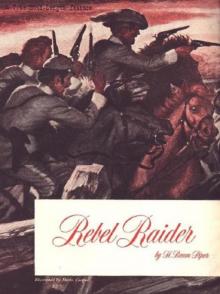 Rebel Raider
Rebel Raider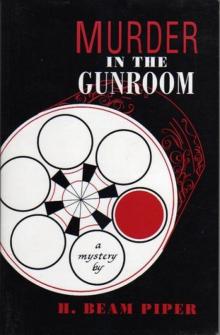 Murder in the Gunroom
Murder in the Gunroom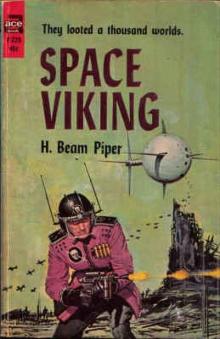 Space Viking
Space Viking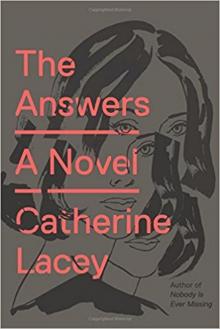 The Answer
The Answer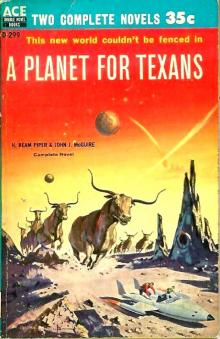 A Planet for Texans (aka Lone Star Planet)
A Planet for Texans (aka Lone Star Planet)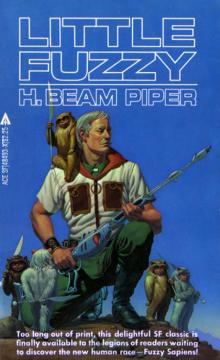 Little Fuzzy
Little Fuzzy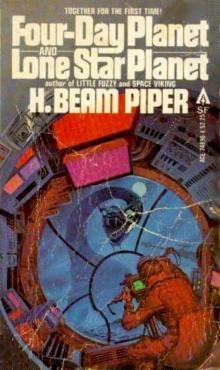 Four-Day Planet
Four-Day Planet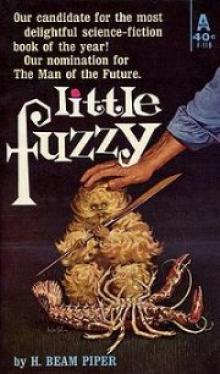 Little Fuzzy f-1
Little Fuzzy f-1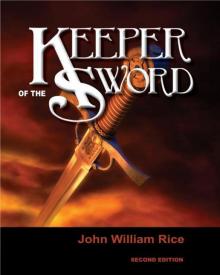 Keeper
Keeper The H. Beam Piper Megapack
The H. Beam Piper Megapack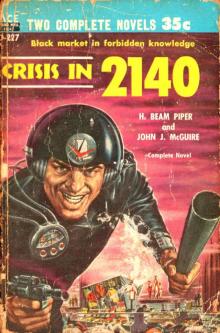 H. Beam Piper
H. Beam Piper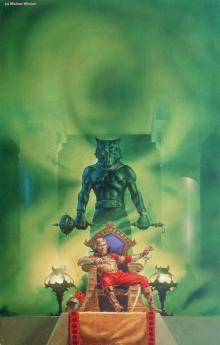 Lord Kalvan of Otherwhen
Lord Kalvan of Otherwhen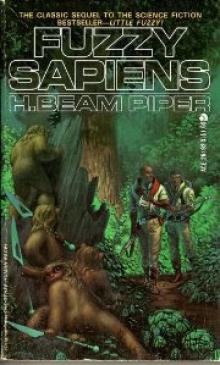 Fuzzy Sapiens f-2
Fuzzy Sapiens f-2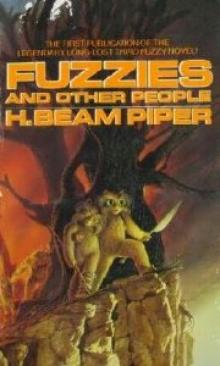 Fuzzies and Other People f-3
Fuzzies and Other People f-3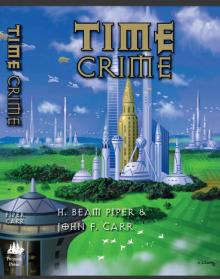 TIME PRIME
TIME PRIME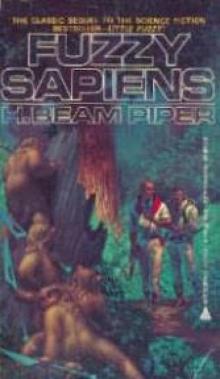 Fuzzy Sapiens
Fuzzy Sapiens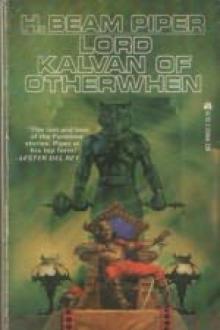 Lord Kalvan of Otherwhen k-1
Lord Kalvan of Otherwhen k-1 The Second H. Beam Piper Omnibus
The Second H. Beam Piper Omnibus